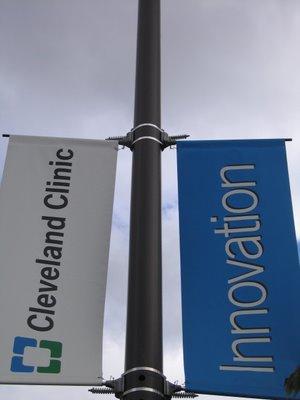 The time for fear, crying, and whining is coming to an end. Sure the Greater Great Lakes Region faces some serious challenges: an aging population; an outflow of talented graduates; low educational attainment among remaining workers; latent entreprenurial spirit; taxing healthcare costs; racism; and job loss.
The time for fear, crying, and whining is coming to an end. Sure the Greater Great Lakes Region faces some serious challenges: an aging population; an outflow of talented graduates; low educational attainment among remaining workers; latent entreprenurial spirit; taxing healthcare costs; racism; and job loss.But through it all the region also maintains numerous powerful and unique assets: 97 million people; the largest freshwater ecosystem in the world; 300 of the planet's Fortune 1,000 firms; the largest concentration of the world's research universities performing 29 percent of the nation's R&D, producing 38 percent of its bachelor degree holders, graduating 37 percent of its advanced degree holders in science and engineering.
Who says the people of the Great Lakes are a bunch of factory grunts who can't compete in a knowledge economy? Bring it on.
Indeed, even as the region de-industrializes, it remains an incredible force to be reckoned with in the global knowledge economy, according to the Vital Center, the latest report from the Brookings Institution released here in Cleveland today. The report recommends a series of strategies designed to spark industrial achievement, social progress, and civic interest across the Great Lakes.
"We have a huge asset base here in the Great Lakes," said David Nash, an attorney and leader of Sustainable Cleveland. "Despite the decline in manufacturing, rather than say whoa-is-me, this [Brookings report] is a wake up call and an action call to globalize our assets, grow those assets, and leverage those assets."